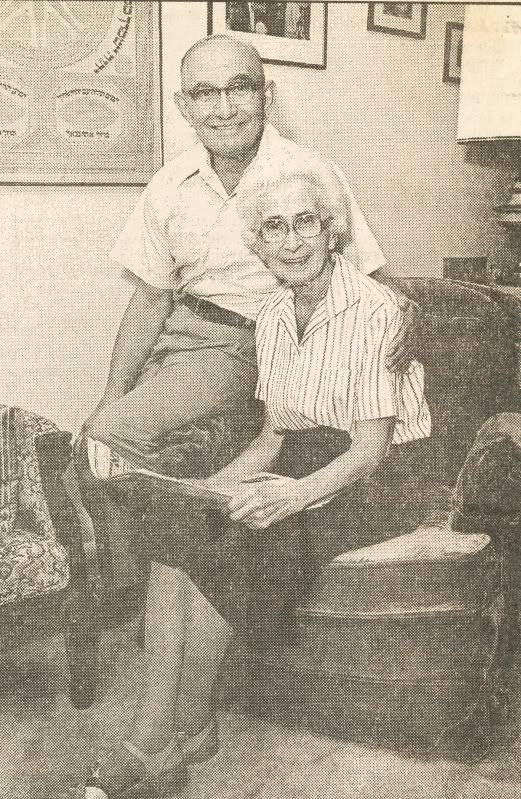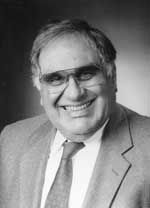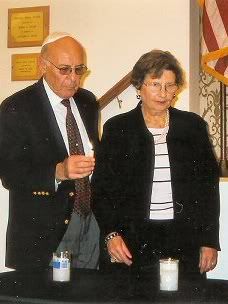One of the on-going projects of the Lakin Holocaust Resource Center at Albright is to collect personal testimonies from Holocaust survivors and liberators. Currently, we have over 3 dozen videotaped interviews available for circulation. Many of these feature the stories of local Berks County residents.
 Here are the words of the testimony of Charles and Esther Kuperstock; they were married a few years before they were sent to the camp, then separated during a selection. Incredibly, each survived several camps and many selections, and they eventually moved to Reading, PA.
Here are the words of the testimony of Charles and Esther Kuperstock; they were married a few years before they were sent to the camp, then separated during a selection. Incredibly, each survived several camps and many selections, and they eventually moved to Reading, PA.
"We are grateful to the Federation of the Jewish Community Center in Reading, Pennsylvania for giving us the opportunity to tell our story. Our task and our obligation are to remind the world, and especially young people, to study the history of the Holocaust and the atrocity of the horrors the Nazis inflicted on us. Six million men, women, and children were wiped out and the only known reason was because they were Jews. We must prevent this from happening again." -Esther Kuperstock

Here are the words of Richard J. Yashek. He was taken to the Jungfernhof camp when he was 12. He eventually came to Pennsylvania and became an executive of J.C. Ehrlich Company. Read more about him in his book, The Story of My Life.
"For a better understanding and to respect all people, it is now up to all of us who have experienced intolerance and hate, to do what needs to be done in our communities. We can do this by talking to our children, and their children, to foster good will and understanding among all people." -Richard Yashek in a letter to Pastorin Anne Rahe

Here are the words of Sid and Esther Bratt. Sid was born in East Prussia, which was then a German province. He saw his synagogue burned down by Germans in Kristallnacht when he was just 9 years old. He was sent by his mother on the Kindtransport when he was about 10. She could only send one child; Sid never saw his mother, two brothers, or sister again. He was reunited with his father at age 13. Esther Bratt and her parents were sent to the Vilna Ghetto and later to a labor camp called Hakapeh. They escaped death on many occassions and escaped from the camp when a guard was drunk. They hid in a Polish man's tiny cellar for two weeks until they were liberated. Sid and Esther met in New York, where they had both immigrated, and eventually married. In 2011, they celebrated their 60th wedding anniversary.
“…When we came to the States, and got our citizenship, we had that feeling of belonging again… we were back with humanity. That’s why we have never missed voting – whether it be a primary or a general election –it is that precious to us because we never had it. It means an awful lot… it was not so much the celebration, though that took place too, but it was the feeling of security that you had. You belonged somewhere now, after all those years.
If it wouldn’t be for immigrants who come here, and who can appreciate the freedoms that we have here, everybody else takes it for granted. If it wouldn’t be for us immigrants, to just say “Hey, don’t knock America unless you can tell me where there is a better place… and I can tell you, there is no better place!” …Here in the United States, if you want to, and are [genuine] about it, it is unlimited what you can do for yourself. The opportunities are here, and I think it takes people from other countries, whether it be from Vietnam, from China, from Europe, any of the countries in Europe, or South America or South Africa, to wake us up and say “you are very lucky people here! Appreciate it.” –Sid Bratt on BCTV Coming to Reading